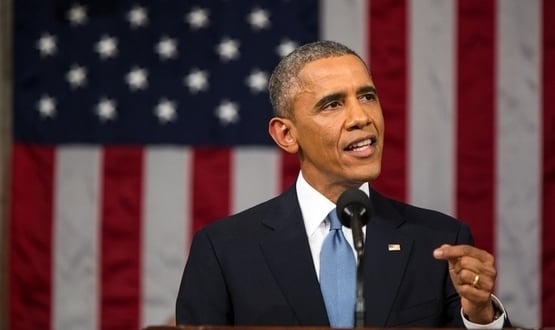Obama: Health IT interoperability ‘harder than expected’
- 17 January 2017

It’s not just NHS IT leaders, even the outgoing President Barack Obama has struggled with the thorny problem of healthcare interoperability.
During an interview on Obamacare with new services Vox earlier this month, the commander-in-chief said achieving progress on healthcare interoperability had been frustratingly slow during his presidency.
Obama said the US$27 billion (£23 billion) his government had spent on Meaningful Use since 2009, a programme designed to accelerate digitalisation of the US healthcare system, has delivered mixed success.
“We put a big slug of money to encouraging everyone to digitalise and catch up with the rest of the world here,” Obama said.
“It’s proven to be harder than we expected, partly because everyone has different systems, they don’t all talk to each other, it requires retraining people in how to use them effectively, and I’m optimistic that over time it’s inevitable it’s going to get better because every other part of our lives, it’s become paperless.”
National Coordinator for Health Information Technology Office figures shows that more than 90% of US hospitals have some type of electronic medical record (EMR) system, a higher prevalence than in NHS hospitals.
However, US hospitals did less well when it came to interoperability and sharing patient data, with only 38% saying they can use or integrate data from another hospital into their own EMR.
In his review of a digital NHS IT released last year, US-based Dr Bob Wachter said while the UK could learn from United States’ digital health successes it could also benefit from its shortcomings, particularly poor interoperability.
Speaking to Vox, Obama acknowledged digitalising health had taken longer than expected.
“Some of it has to do with the fact that it’s decentralised and everyone has different systems.”
Other barriers included perverse economic incentives that meant service providers had an incentive not to share records, he said.
“In some cases, you have economic incentives against making the system better; you have service providers — people make money on keeping people’s medical records — so making it easier for everyone to access medical records means that there’s some folks who could lose business. And that’s turned out to be more complicated than I expected.”
It will be up to Obama’s successor, Donald Trump, whether to keep pushing for health IT interoperability. Like many policy areas, the incoming president’s position on health IT is anyone’s guess.




